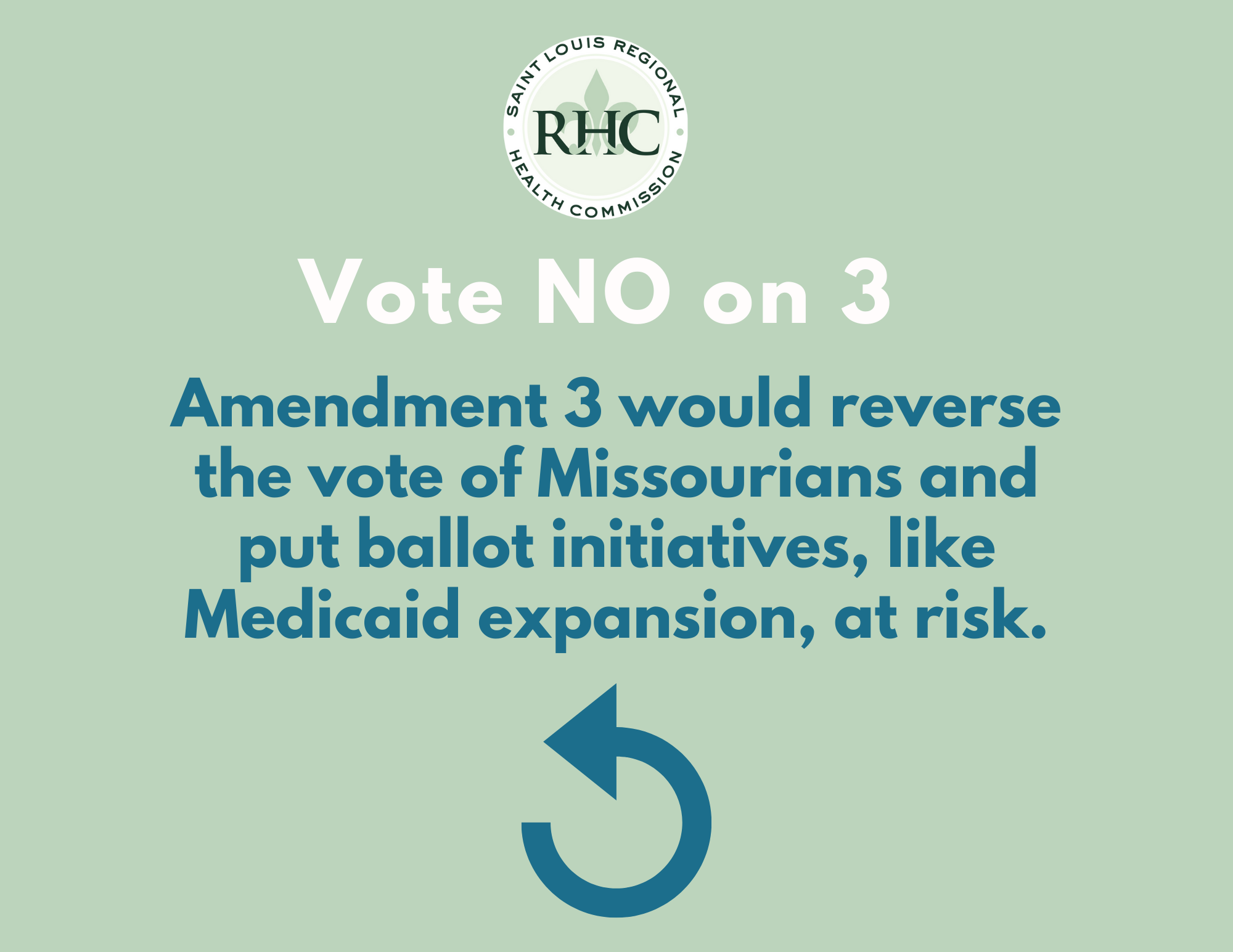When you think of public health issues, you might consider disease prevention or wellness programs. Perhaps you reflect on social issues, like access to healthy food or safe housing. But do you think of social justice issues and our political system?
The public health landscape is constantly changing and expanding. The more we learn, the more we understand that factors indirectly related to health – like voting policies – are critical in building a healthy society. Therefore, as a public health leader in St. Louis, I strongly oppose Amendment 3, which would hurt our democracy and put policies that promote health and healthy equity at risk.
In 2018, Missourians overwhelmingly passed Amendment 1, “Clean Missouri,” by a 2-1 margin in a ballot initiative. The people of Missouri, including democrats, republicans, and independents all across the state, voted for a fairer political system. Amendment 1 implemented changes that democratized our elections and redistricting process – the way maps are drawn that decide for whom and what we can vote. The maps earned non-partisan endorsements and support from influential community-based organizations, such as the NAACP Missouri State Conference and Deaconess Foundation.
But, there’s a new amendment on this year’s ballot – Amendment 3 – that would reverse the significant gains Missouri has made. The issue runs deeper than reversing good, fair policy. To have a well-functioning democracy, the vote of the people should matter and inform policy. Amendment 3 jeopardizes this principle.
Reversing Amendment 1 could put other ballot initiatives, like Medicaid expansion, at risk. We spent the last several months campaigning to expand a program that would improve health care access and the health outcomes of our state. The ballot measure for Medicaid expansion won when Missourians demanded change and voted in August. Passing Amendment 3 would establish a risky precedent, where ballot initiatives and the will of the people can be overturned.
If passed, Amendment 3 would be harmful to all communities in Missouri, especially communities of color. The policy would change the redistricting criteria and not count children and non-citizens (including immigrants and those under probation and parole) in the population. Currently, all other states count everyone in their maps. The changes in redistricting criteria would lead to a loss of representation for children and weakened protections for voters of color. The amendment would lead to a drop in representation for White communities by 21%, Black communities by 28%, and Latinx and Asian American communities by 54%.
At the St. Louis Regional Health Commission, we work towards health equity – a world in which your skin color does not predict your ability to obtain health care access or good health outcomes. Policies that further disenfranchise communities of color make it harder to enact laws and elect politicians that represent our entire community and achieve health equity.
Vote NO on Amendment 3, and encourage your friends, family members, and neighbors to do the same. If you are a leader of a non-profit, health care organization, or business committed to social justice and racial equity – I encourage you to come out against Amendment 3. This legislation would reverse the will of the people and disproportionately harm communities of color. We cannot stand idly by when the health of our democracy and community is at stake.
Angela Brown is the Chief Executive Officer of the St. Louis Regional Health Commission (RHC).

